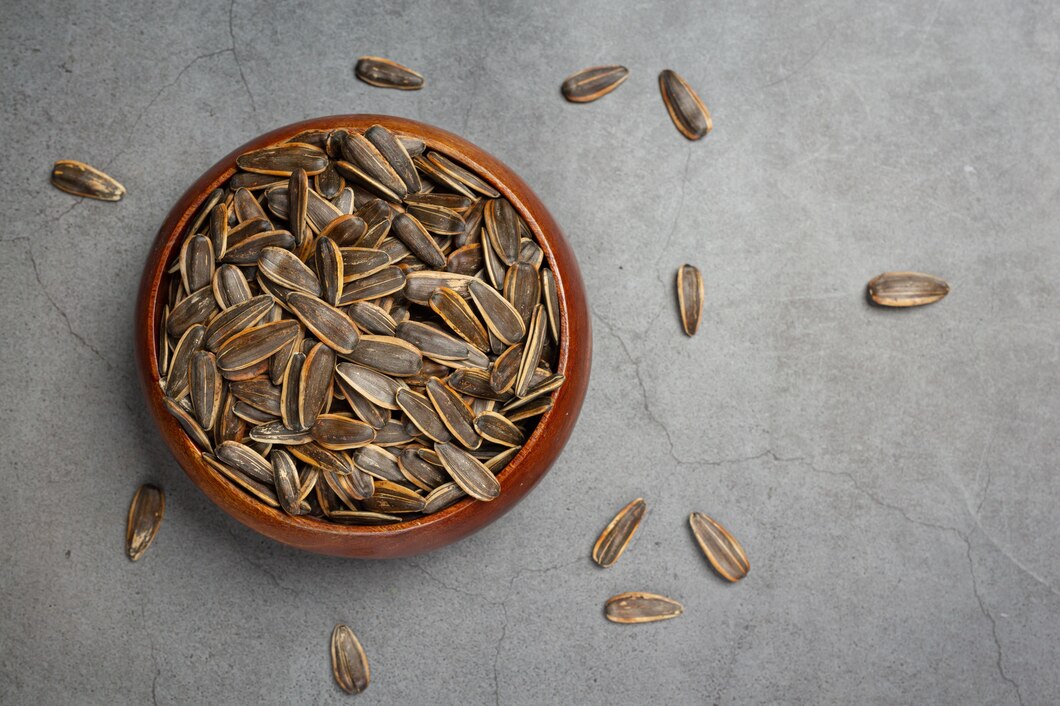Nut allergies can make it challenging to enjoy certain recipes that call for almonds or other nuts. However, there are plenty of delicious and nutritious alternatives that can be used in place of almonds, ensuring that your meals are both safe and satisfying. Here are five excellent substitutes for almonds that cater to those with nut allergies.
1. Sunflower Seeds
Sunflower seeds are a fantastic alternative to almonds, offering a similar texture and a mild, nutty flavor. They are rich in healthy fats, protein, and vitamins such as vitamin E. Sunflower seeds can be used in a variety of ways:
- Baking: Ground sunflower seeds can replace almond flour in recipes for cookies, muffins, and cakes.
- Snacking: Roasted sunflower seeds make a crunchy, nut-free snack.
- Salads and Toppings: Sprinkle them on salads, yogurt, or oatmeal for added crunch and nutrition.
2. Pumpkin Seeds
Also known as pepitas, pumpkin seeds are another excellent substitute for almonds. They are packed with protein, magnesium, and healthy fats, making them a nutritious addition to any diet. Pumpkin seeds can be used in various recipes:
- Baking: Use ground pumpkin seeds as a substitute for almond meal in gluten-free baking.
- Snacking: Enjoy them roasted and seasoned as a healthy snack.
- Cooking: Add them to granola, trail mix, or use them as a topping for soups and stews.
3. Oats
Oats are a versatile and allergy-friendly option that can be used in place of almonds. They are high in fiber, which aids in digestion, and provide a good source of vitamins and minerals. Here’s how you can use oats as a substitute:
- Oat Flour: Grind oats into flour to use as a replacement for almond flour in baking recipes.
- Granola and Bars: Use rolled oats as a base for homemade granola or energy bars.
- Toppings: Sprinkle oats on top of yogurt, smoothies, or fruit salads for added texture and nutrition.
4. Coconut
Coconut is a delicious and allergy-safe alternative to almonds. It comes in various forms, such as shredded, flaked, or as coconut flour, providing flexibility in the kitchen. Coconut is rich in healthy fats and adds a unique flavor to dishes:
- Baking: Use coconut flour as a substitute for almond flour in baked goods, keeping in mind that coconut flour absorbs more moisture, so adjust liquids accordingly.
- Snacking: Toasted coconut flakes make a tasty, nut-free snack.
- Cooking: Add shredded coconut to granola, smoothies, or use it as a topping for desserts and breakfast bowls.
5. Chia Seeds
Chia seeds are tiny but packed with nutrients, including omega-3 fatty acids, fiber, and protein. They are a great alternative to almonds, especially in recipes where a gel-like consistency is beneficial. Chia seeds can be used in various ways:
- Baking: Ground chia seeds can replace almond flour in certain baking recipes.
- Puddings: Make chia seed pudding by soaking the seeds in milk or a milk alternative until they form a gel-like texture.
- Toppings: Sprinkle chia seeds on top of smoothies, yogurt, oatmeal, or salads for added crunch and nutrition.
Finding suitable substitutes for almonds in nut allergy-safe recipes is easier than you might think. Sunflower seeds, pumpkin seeds, oats, coconut, and chia seeds are all excellent alternatives that provide similar textures and flavors while being safe for those with nut allergies. By incorporating these ingredients into your recipes, you can enjoy delicious and nutritious meals without compromising on taste or safety. Always ensure to check for cross-contamination and choose certified allergy-safe products when available.








